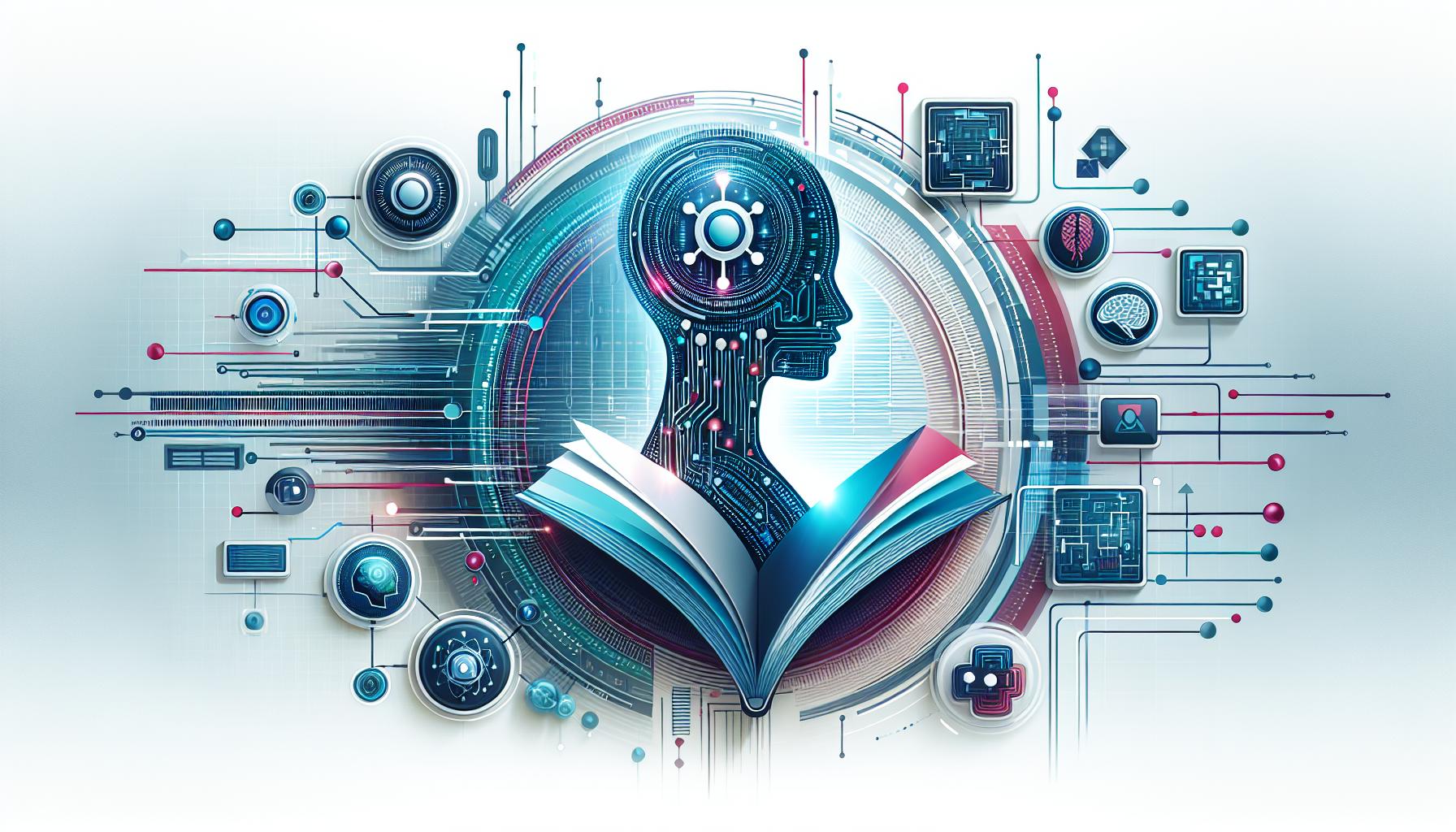Can artificial intelligence help aspiring authors transform their ideas into complete manuscripts? As technology advances, tools like ChatGPT offer exciting possibilities for writers, making the dream of publishing a book more achievable than ever. This article explores how to harness AI creatively in your writing journey, merging innovation with storytelling.
Editing and Polishing: Enhancing Your Manuscript with AI Assistance
When it comes to the editing phase of manuscript development, many authors find it to be a daunting task. This is where AI tools like ChatGPT can step in to offer valuable support. Imagine having a virtual writing assistant that not only spot-checks for grammar and spelling errors but also provides suggestions for enhancing your narrative flow, character development, or thematic depth. In the ever-evolving world of writing, turning your raw ideas into a polished manuscript is more achievable than ever.
Leveraging AI for Structural Cohesion
One of the main advantages of using AI in your editing process is its capability to analyze the structural components of your work. Whether you’re working on a fiction novel or a non-fiction guide, AI tools can identify inconsistencies in plot arcs, character development, or factual discrepancies. Here’s how to utilize AI effectively:
- Plot Analysis: Feed your manuscript into the AI and ask for a summary of the plot. This helps identify if all story arcs are well-connected.
- Character Development: Request feedback on the characters to check if they have clear motivations and sufficient depth.
- Thematic Consistency: Inquire about the themes present in your manuscript and if they are portrayed effectively throughout the narrative.
Feel free to tweak and adapt the information generated by the AI, ensuring that it resonates with your unique style.
Grammar and Style Enhancement
While grammar and style checkers are a dime a dozen, incorporating AI can elevate the editing experience. Here’s how ChatGPT can assist in refining your prose:
- Grammar Check: Paste sections of your text into the AI for real-time grammatical suggestions.
- Style Tone Matching: Indicate the desired tone of your manuscript (e.g., formal, conversational), and let the AI adjust your sentences accordingly.
- Vocabulary Enhancement: Ask for synonyms or phrases that may better convey your intended emotion or action.
The key is to remember that while AI provides recommendations, the ultimate voice of the manuscript should reflect your artistic intentions.
Examples of Effective Revision
To put this into perspective, let’s look at how a piece of writing can transform with AI assistance. Here’s a brief comparison of a raw sentence and its enhanced version:
| Original Sentence | AI-Enhanced Version |
|---|---|
| The storm was bad, and it rained heavily. | The tempest raged ferociously, unleashing torrents of rain that lashed against the windows. |
In this example, the enhanced version not only corrects potential issues but also adds vivid imagery that pulls the reader into the scene.
As you navigate through the editing and polishing steps of manuscript development, remember that AI tools like ChatGPT are designed to assist and inspire. They are not a replacement for your voice, but rather a collaborator to help you realize your vision—turning ideas into the polished reality they deserve.
Navigating Copyright and Originality Concerns When Using AI

As artificial intelligence becomes increasingly integrated into creative processes, writers who are curious about the capabilities of tools like ChatGPT often grapple with fundamental questions around copyright and originality. AI can indeed be an asset in generating ideas, drafting outlines, or even writing entire chapters, but it also comes with a set of complex legal and ethical considerations that each author needs to navigate carefully.
Understanding Copyright in AI-Generated Text
The first thing to understand is that the ownership of AI-generated text can be murky. When you ask ChatGPT to help you draft content, the output is a result of learned patterns from extensive datasets. In many jurisdictions, copyright law protects original works of authorship, so if the text produced by AI is deemed as original and fixed in a tangible medium, there may be a question of who holds the copyright: the user or the AI’s developer. Here are some key points to consider:
- User Originality: If you provide substantial prompts and guidance to shape the response, you may claim authorship of the resulting work.
- AI as a Tool: View AI as a collaborative tool rather than the author itself—your involvement in shaping the content plays a crucial role in determining originality.
- Licensing Agreements: Always review the terms of service of the AI tool. Some platforms may have specific clauses concerning ownership of generated content.
Practical Steps to Ensure Originality
To mitigate risks related to copyright and safeguard the originality of your work, consider adopting the following best practices:
- Customize Prompts: Tailor your prompts to reflect your unique voice and message. This will help in generating content that feels authentic to you.
- Edit and Revise: Treat the output as a first draft. Always edit and enhance the material, incorporating your insights and personal touch.
- Keep Records: Document your creative process, noting how you employed ChatGPT in your writing journey, as this can serve as evidence of your authorship if questions arise.
Real-World Examples
Several authors and content creators have leveraged AI in their work while ensuring they maintain control over their intellectual property. For instance, an independent novelist utilized ChatGPT to generate plot ideas and character backgrounds. By substantially editing and building upon the AI’s contributions, the author crafted a unique narrative that reflected their personal writing style while adhering to existing copyright laws.
Another example involves marketers who use AI-generated content for blogs and articles. They typically complement AI output with their industry knowledge, ensuring the finished product remains original and adds real value to readers. This blend of AI assistance with personal expertise not only preserves originality but also enhances credibility and engagement.
By navigating these copyright and originality concerns with informed strategies, writers can effectively utilize AI tools while crafting original, valuable content that stands out in today’s competitive landscape.
Real-Life Success Stories: Authors Who Used ChatGPT for Their Books

Imagine dreaming of writing a compelling novel, only to find yourself staring at a blank page, teetering between inspiration and uncertainty. What if there was a powerful tool that could help you bridge that gap? Many authors are now turning to AI technologies like ChatGPT, not just as a brainstorming partner, but as a core component in their creative process. This incredible tool is transforming ideas into tangible stories, helping countless writers navigate the often-daunting world of authorship.
Real-life authors have successfully harnessed the capabilities of ChatGPT, showcasing its versatility and effectiveness. For instance, one author used it to generate plot outlines and character development ideas for her fantasy series, significantly speeding up her writing process. The easy-to-use interface allowed her to refine her initial concepts, leading to a narrative that was unique and engaging. As she integrated feedback from ChatGPT, her confidence grew, and she finished the first draft in half the time it typically took her.
Another success story comes from a nonfiction writer who struggled with structuring her book on personal finance. By feeding ChatGPT some key themes and ideas, she received well-organized chapter outlines and relevant content suggestions that transformed her jumbled notes into a coherent manuscript. She noted that using AI allowed her to focus more on her voice and personal anecdotes rather than getting bogged down in the mechanics of organization. This efficiency not only enhanced her writing experience but also improved the final quality of the book.
For those considering utilizing AI like ChatGPT for their literary pursuits, here are a few practical steps to start:
- Define Your Vision: Before engaging with ChatGPT, outline your ideas and the message you wish to convey. Having a clear vision will lead to more tailored responses.
- Collaborate Actively: Treat the AI as a co-author. Ask for suggestions on plot twists, character names, or even dialogue, and build upon its responses.
- Iterate and Improve: Don’t hesitate to revise the outputs. Use the generated content as a foundation and infuse it with your distinct style and voice.
With these strategies, writers can effectively convert their ideas into reality, making the dream of authorship accessible and enjoyable.
Best Practices for Integrating ChatGPT into Your Writing Routine

Integrating ChatGPT into your writing routine can feel like having an invaluable co-author at your fingertips. This powerful tool not only helps streamline the creative process but can also inspire fresh ideas and enhance your writing quality. By understanding the best practices for leveraging this AI assistant, you can transform your writing endeavors, whether you’re drafting a novel, crafting essays, or penning articles.
Develop a Structured Approach
When incorporating ChatGPT into your writing workflow, it’s essential to establish a structured approach. This ensures that the AI acts as a supportive partner rather than a distraction. Here’s how to set it up effectively:
- Set Clear Objectives: Define what you want to achieve with ChatGPT. Whether it’s brainstorming ideas, improving drafts, or overcoming writer’s block, having a clear mission will guide your interactions.
- Utilize Outlines: Before engaging with ChatGPT, create a basic outline of your work. This outline will serve as a roadmap, helping the AI generate focused content that aligns with your vision.
- Iterative Feedback: Use ChatGPT iteratively. Write a section, get feedback, and then refine. This back-and-forth can help enhance the clarity and depth of your writing.
Enhance Idea Generation and Refinement
Utilizing ChatGPT for brainstorming can unlock a wealth of creative possibilities. For instance, if you’re unsure how to kick-start your chapter, you can prompt the AI with a specific theme or genre. The AI can generate multiple scenarios or character sketches, which can spark ideas you might not have considered.
Moreover, once you have a draft, asking ChatGPT questions about specific sections can help you refine your content. For example, “Is this character’s motivation clear?” or “How can I make this argument stronger?” will prompt the AI to provide targeted suggestions that improve your work.
Maintain Your Unique Voice
While ChatGPT can generate impressive content, it’s crucial to retain your distinctive writing style. To achieve this, aim to:
- Customize Prompts: Tailor your prompts to include your tone, style, and preferences. For instance, if you enjoy humor, mention that in your prompts to receive responses that reflect that ethos.
- Edit and Revise: Treat the AI’s outputs as drafts. Read through suggested text, edit for coherence, and ensure it fits seamlessly into your work.
Track Progress and Adjust
Monitoring your integration of ChatGPT can help optimize your writing process. Consider keeping a simple log of how the AI assists you, noting successful strategies and areas for improvement. Is it generating ideas that feel authentic? Are there prompts that yield particularly useful content? This reflection will guide you to refine your usage over time, ultimately helping you turn your ideas into a reality as you craft your book.
Utilizing ChatGPT strategically not only enhances your writing routine but also empowers you as a creator, making the process of writing a book more enjoyable and effective.
Frequently asked questions
Can You Use ChatGPT to Write a Book? Turn Ideas Into Reality?
Yes, you can use ChatGPT to help write a book by providing ideas, outlines, and even full chapters. The AI can assist in brainstorming and refining your concepts, making the writing process more efficient.
Many authors turn to AI tools like ChatGPT to enhance creativity and overcome writer’s block. By entering prompts related to your book’s theme or genre, ChatGPT can generate content that aligns with your vision, helping you transform your ideas into a structured narrative.
How can I use ChatGPT to generate book ideas?
You can use ChatGPT to brainstorm book ideas by providing it with keywords or themes that interest you. The AI will generate several suggestions based on your input, allowing you to explore different angles for your book.
Start by outlining your interests, such as genres or specific topics. Then ask ChatGPT to provide ideas or even short summaries. This process can help you identify compelling concepts that resonate with your vision. For more tips on brainstorming, check out our article on brainstorming techniques.
What are the benefits of using ChatGPT for writing?
Using ChatGPT for writing offers several benefits, including increased productivity and enhanced creativity. The AI can help generate content quickly, allowing you to focus on refining your ideas and narrative structure.
Additionally, ChatGPT can provide suggestions for character development, dialogue, and plot twists, which can enrich your story. This collaboration allows you to explore creative possibilities that you might not have considered, making your writing journey more enjoyable and dynamic.
Can I rely on ChatGPT for editing my book?
While ChatGPT can assist with editing, it is best used as a supplementary tool rather than a sole editor. The AI can help identify grammar mistakes, suggest rephrasing, and improve sentence structure.
However, human oversight is crucial since AI may miss nuanced context or themes unique to your writing style. Combining AI suggestions with your revisions can lead to a polished final draft that retains your voice and intention.
Why does ChatGPT work well for novel writing?
ChatGPT excels in novel writing because it can generate coherent text based on prompts, simulate character interactions, and craft engaging storylines. Its ability to process vast amounts of information makes it a versatile writing partner.
Because it learns from diverse datasets, ChatGPT can reflect various writing styles and genres, offering flexibility that appeals to authors. Utilizing this AI can lead to unique story elements, aiding your creative process and transforming your initial ideas into a completed manuscript.
What should I keep in mind when using ChatGPT for writing a book?
When using ChatGPT for writing, keep in mind that it is a tool to support your creativity, not a replacement for your voice or vision. It’s essential to review and revise any content generated.
Also, ensure ethical use by maintaining originality and avoiding plagiarism. Balancing AI assistance with your unique perspective will yield the best results, creating a book that genuinely reflects your creativity.
Can I create a character profile using ChatGPT?
Yes, you can create character profiles using ChatGPT! Simply provide it with details like personality traits, background, and motivations, and it can generate comprehensive profiles for your characters.
This process not only helps in developing distinct and engaging characters but also aids in ensuring consistency throughout your novel. By having well-defined characters, your writing becomes more relatable and immersive for readers.
To Conclude
In conclusion, leveraging ChatGPT to write a book can transform your ideas into a tangible reality. By understanding its capabilities and limitations, you can effectively harness this technology as a tool to streamline your writing process. Start with a clear outline of your concepts, engage with the AI to generate text, and refine the results to reflect your unique voice. Remember, while AI can assist in crafting narratives and generating ideas, your creativity and insights are irreplaceable.
As you embark on this journey, don’t hesitate to experiment with different prompts and styles. Explore how ChatGPT can support you in brainstorming, overcoming writer’s block, or even enhancing existing drafts. The more you interact with this technology, the more adept you’ll become at utilizing it to enrich your writing. So why not dive in and start transforming your stories today? The world is waiting for your voice—let’s get writing!





